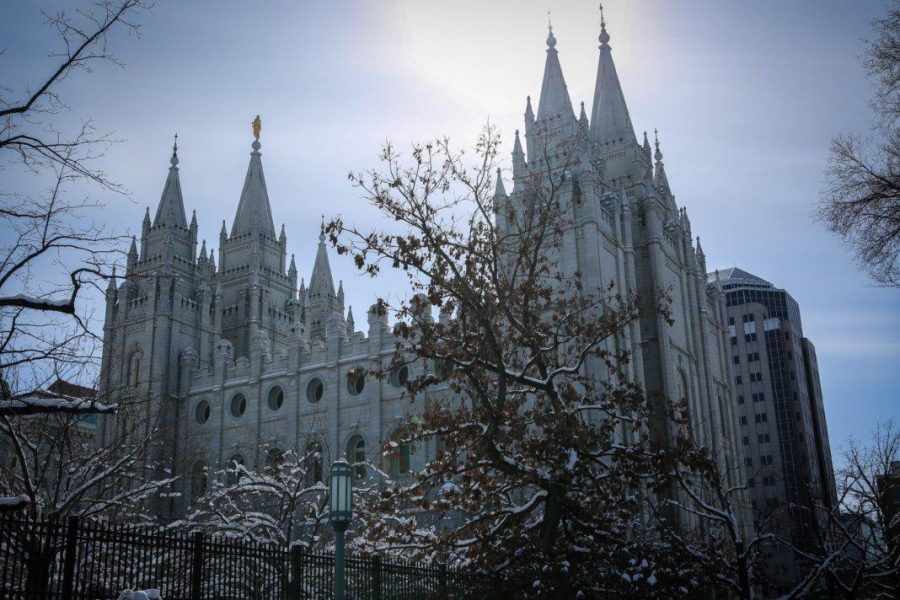
Cass Palor
The Church of Jesus Christ of Latter-Day-Saint's temple in Salt Lake City | Chronicle archives.
Utah’s midterm election brought politics to the University of Utah campus in 2018, with heated campaign debates and a constant presence of signature collectors for ballot initiatives, not to mention hosting the campus’ first vote center during a non-presidential election. Perhaps the most talked about item on the ballot, however, was Proposition 2 for the legalization of medical marijuana. The Church of Jesus Christ of Latter-day Saints weighed in heavily during the ballot measure push, however, it recently announced it will disengage from the issue.
Marty Stephens, the Church’s government and community relations director, announced that the Church would be taking a step back and from any future medical marijuana legislation unless it involved the legalization for recreational use. During an interview with FOX 13, Stephens stated that the LDS Church was satisfied with the compromise bill that passed the Utah house and senate in a special session in December and that it would not engage with any future bills aimed at adjusting the compromise to fit the needs of medical practitioners and patients.
After being vocal in their opposition to Proposition 2, the Church took a different route shortly before the election in November, backing talks of a compromise bill. The decision came after a poll showed Utah voters were largely supportive of the measure. Church officials were present during the negotiations planning HB 3001, seen as a compromise bill. Many however viewed the bill as a gutting of what had originally been proposed by the ballot measure and admonished lawmakers and the Church for their participation.
A lawsuit filed by the Epilepsy Association of Utah, Douglas Arthur Rice, TRUCE and Christine Stenquist against the State of Utah alleges that Utah lawmakers violated citizen’s constitutional rights by bypassing the original proposition in order to appease the Church. Gov. Gary Herbert took the stance that the Church may weigh in on legislation just as anyone else in the state can.
Stephens also weighed in on the potential for new hate-crimes legislation that has been proposed for the upcoming legislative session. Utah’s hate-crimes legislation came under fire in November after a Latino man and his son were attacked at their place of work by a man who had allegedly yelled that he had wanted to kill a Mexican during the attack.
Hate-crimes legislation has long been a point of contention in Utah. Utah’s district attorney has called the legislation “toothless,” and stated that the November crime could not be prosecuted as a hate crime under current legislation. After two failed attempts at amending the law Sen. Daniel Thatcher, R-West Valley City, claimed his latest attempt was derailed after the church weighed in because of the legislation’s inclusion of protections for LGBTQ people.
Stephen’s statement on Wednesday claimed that the church would not oppose an amendment to bolster Utah’s current hate-crimes law and that such a law should be inclusive of all groups normally protected by hate-crimes legislation. Herbert made a similar comment during his monthly televised news conference at KUED.
This article is part of the Poynter College Media Project. Click here for more stories and information on the topic “Are U Mormon?”
c.giardinelli@dailyutahchronicle.com
@ninetta89
